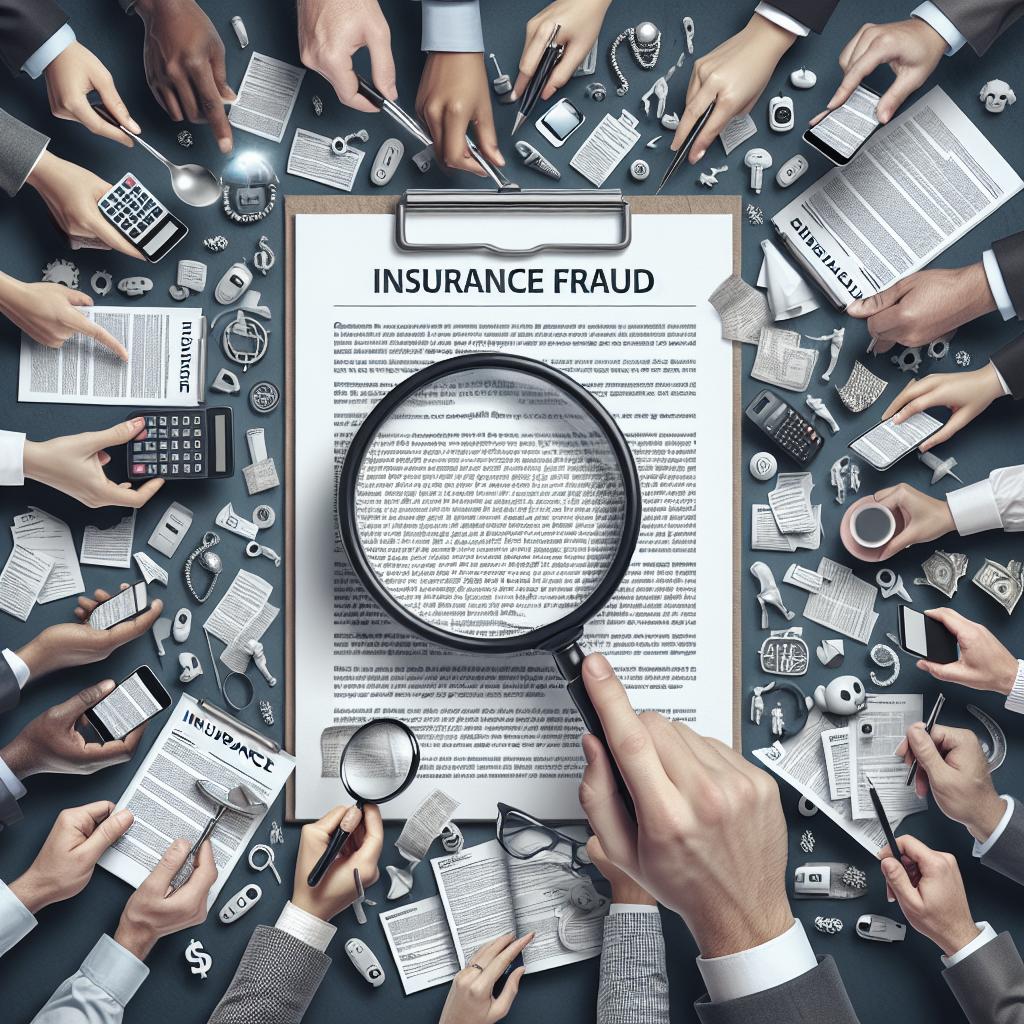“`html
How to Report Insurance Fraud
Insurance fraud is a serious issue that affects consumers and the insurance industry as a whole. Learning how to identify and report insurance fraud is crucial for protecting your interests and ensuring that perpetrators are held accountable. This comprehensive guide will help you understand what constitutes insurance fraud, the steps to report it, and how to protect yourself from becoming a victim. You will also learn about common scams, the importance of knowing your insurance agent, and how to differentiate between fraud and consumer complaints. Whether you’re an informed consumer or someone seeking advice on handling a suspicious insurance situation, this post offers valuable insights to navigate these challenges.
Get Help
If you suspect insurance fraud, it’s important to seek assistance promptly. Engaging with professionals who handle such cases can provide guidance and ensure that corrective measures are taken swiftly. Fraudulent activities can be complex, involving legal and financial ramifications, which makes it crucial to rely on expert advice.
You now have 3 options:
1. Contact Law Enforcement: The first step in handling potential fraud is to inform local law enforcement. Police can investigate and gather evidence to strengthen your case against the perpetrators. Reporting to the authorities places the issue on record, which is beneficial if legal actions follow.
2. Reach Out to Your Insurance Company: Notify your insurer about your suspicions. Most insurance firms have dedicated fraud units that investigate claims and identify discrepancies. Providing them with detailed information can help expedite the resolution process and prevent further fraudulent activities.
3. Consult a Legal Expert: In complex cases, contacting a lawyer specializing in insurance fraud is advantageous. Legal professionals can offer advice on protecting your rights and pursuing actions that ensure justice is served.
Report Suspected Insurance Fraud
What is Insurance Fraud?
Insurance fraud involves deceiving an insurance company to gain unauthorized benefits. This can occur when individuals or businesses submit false claims, misrepresent facts, or withhold information relevant to an insurance policy. Fraudulent activities can significantly undermine the credibility and financial stability of the insurance industry.
Distinguishing legitimate claims from fraudulent ones is vital for maintaining the integrity of the insurance process. Fraud not only affects insurers but also increases premiums for consumers as companies strive to mitigate their losses.
Insurance Fraud Takes Many Forms
Fraudulent activities can be perpetrated by policyholders, insurance companies, and external entities. Common forms of fraud include staged accidents, falsifying claims for more coverage than deserved, and impersonating insurance agents to mislead consumers.
Understanding these variations allows you to remain vigilant and recognize suspicious activity. Educating yourself about the diverse forms of insurance fraud equips you with the knowledge to safeguard your interests and report suspicious activities efficiently.
Avoid Becoming a Victim
To avoid falling prey to insurance fraud, skepticism is key. Always verify the credibility of offers that seem too good to be true. Maintaining a proactive approach when interacting with insurance agents and companies can prevent fraudulent engagements.
Another preventative measure is safeguarding your personal information. Many fraud operations commence with theft or unauthorized access to personal data. Regularly reviewing your credit reports and monitoring account activities can provide early detection of potential threats.
Be an Informed Consumer
Informed consumers are better equipped to handle suspicious situations and fraudulent claims. Regularly updating yourself on market trends and changes in insurance regulations can increase your awareness and understanding of best practices.
Engaging in community forums and discussions about insurance can prove beneficial. Learning from the experiences of others and sharing insights can foster a collective vigilance against fraud.
Know Your Agent or Broker
Developing a strong relationship with your insurance agent or broker is essential for navigating insurance-related challenges. An agent you trust can provide transparent advice and guidance, reducing the chances of fraudulent encounters.
Verify an agent’s credentials and affiliations with reputable insurance bodies. Engaging with professionals affiliated with recognized organizations ensures you receive legitimate services and support.
Get a Copy of Your Policy
Having a copy of your policy provides a reference point for understanding your coverage and benefits. Review the document thoroughly to ensure you comprehend the terms and conditions, which can prevent ambiguity when claims are filed.
In instances where discrepancies arise, referring to your policy document can help clarify and rectify misunderstandings. Always secure your copy to protect against unauthorized access and misuse.
Pay Only for Services You Have Received
A common fraud tactic involves charging for services not rendered. To combat this, always verify invoices and ensure they align with the services you’ve received. Question any discrepancies or charges that do not correspond with your records.
Engaging in regular audits of your payments can protect against unauthorized charges. Keeping meticulous records of transactions aids in identifying and reporting fraudulent practices promptly.
What If You’re Involved in an Automobile Accident?
In the aftermath of an auto accident, it’s crucial to document everything meticulously. Take photographs, gather witness contacts, and ensure police reports are filed promptly. This evidence supports legitimate claims and counters fraudulent assertions.
Notify your insurer immediately after an accident occurs. Providing accurate, comprehensive information enables them to process your claim efficiently and detect any attempts at fraud.
Common Scams
A prevalent scam involves fake policy issuances, where fraudsters convince individuals they have legitimate coverage when they do not. Always confirm the authenticity of policies via direct contact with the insurance company.
Other scams include exaggerated claims or inflating the value of claims. Being alert and questioning extraordinary claims or offers can help you avoid becoming ensnared in these fraudulent schemes.
Fraud vs. Consumer Complaints
Fraud should not be confused with consumer complaints, which often involve service dissatisfaction or disputes over policy terms. While complaints pertain to service quality or customer service, fraud involves deceitful activities intended to secure benefits unlawfully.
Address consumer complaints through negotiation and discussion with the service provider. For fraud, pursue formal measures like reporting to authorities or seeking legal counsel to ensure appropriate action is undertaken.
Next Steps
| Action | Details |
|---|---|
| Get Help | Contact law enforcement, report to your insurance company, consult with legal experts for guidance. |
| Know the Fraud | Understand what insurance fraud is and recognize its many forms to avoid becoming a victim. |
| Be Proactive | Be an informed consumer, verify agent credentials, and keep a policy copy for reference. |
| Stay Alert | Pay only for services received, document auto accidents thoroughly, and watch out for common scams. |
| Differentiation | Learn to distinguish between fraud and consumer complaints for appropriate action. |
“`


